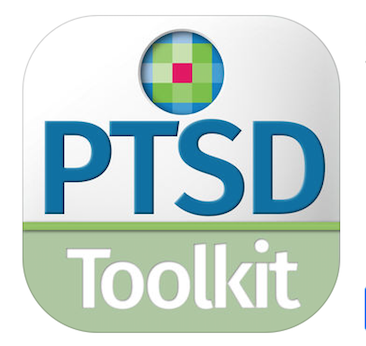Lesson 7: A New Diagnosis
Attention

How have we come to see individuals with Borderline Personality Disorder...?
This week's content is about an attempt at a new vision of the disorder that more accurately describes the nature of the condition.
The National Institute of Mental Health offers a clear definition:
Borderline Personality Disorder
The term "Borderline Personality" used to mean something very different...it used to refer to individuals who were on the border of "Neurosis" and "Psychosis"...however, the same clinical characteristics were identified...
Intense, unstable personal relationships
Repetitive self-destructive behaviors
Chronic fears of abandonment
Chronic feelings of intense anger, loneliness, and emptiness
Another idea is that Borderline Personality Disorder lays upon a continuum that represents the relative ease at which someone may dissociate. At one end are those who can be hypnotized, at the other end are those with Dissociative Identity Disorder...and somewhere in the middle are the persons with Borderline Personality Disorder.
Hypnotizable<-------->Borderline Personality Disorder<------->Dissociative Identity Disorder
correlated with...
Lower IQ<--------------------------------------------------------------->-Higher IQ
Learning Outcomes
Upon completion of this lesson's material, students will be able to:
- Define the "new" diagnosis of "Complex Post-Traumatic Stress Disorder"
- Discuss ways in which this diagnosis is important in the field of Mental Health
- Identify ways in which awareness of the perceptions of others with a diagnosis is an important component of the application of Psychosocial Rehabilitation principles when dealing with an individual who has experienced trauma.
Teaching
Read Chapter 6: A New Diagnosis in Hermon
Goals, Values, Principles, and Practice of Psychosocial Rehabilitation
This document identifies the key principles associated with the prevailing philosophy and treatment approach within the mental health field. Review this document carefully and consider how these principles both challenge and support your work with persons with mental illness and with a history of Trauma.
Trauma is a a VERY common aspect of the histories of the clients we serve. Although this particular Lesson is focused on Complex Post-Traumatic Stress Disorder, it tells us a lot about what it means to have a history of Trauma. Trauma survivors, although different in many ways, share some very important qualities and experiences.
In accordance with the philosophy of Psychosocial Rehabilitation we are meeting our clients "where they are at" by understanding the impact that trauma can have on them.
PTSD & Complex Post-Traumatic Stress Disorder (PTSD)
Click HERE to visit the US Department of Veterans Affairs website on PTSD
As you can see, there are many manifestations of this kind of symptomology. We see this kind of diagnosis not only among our civilian mental health population but a high degree of veterans coming back from combat duty.
- Emotional Regulation. May include persistent sadness, suicidal thoughts, explosive anger, or inhibited anger.
- Consciousness. Includes forgetting traumatic events, reliving traumatic events, or having episodes in which one feels detached from one's mental processes or body (dissociation).
- Self-Perception. May include helplessness, shame, guilt, stigma, and a sense of being completely different from other human beings.
- Distorted Perceptions of the Perpetrator. Examples include attributing total power to the perpetrator, becoming preoccupied with the relationship to the perpetrator, or preoccupied with revenge.
- Relations with Others. Examples include isolation, distrust, or a repeated search for a rescuer.
- One's System of Meanings. May include a loss of sustaining faith or a sense of hopelessness and despair.
Here is an app called Caring4Women Veterans created by U.S. Deparmentof Veterans Affair (VA). It is interesting to see what applicaiton resources the VA is making available for female veterans and those who care for them. Caring4Women Veterans https://itunes.apple.com/us/app/caring4women-veterans/id1053955794?mt=8 Click HERE to view a video about a new program that is being developed by the Navy to reduce the impact of PTSD using the iPad! |
An emerging population that we will be working with include these veterans. As familiar as we are with the services and opportunities for persons with mental illness in the civilian world, we also need to familiarize ourselves with the services that are available for veterans.
Borderline Personality Disorder is different from Complex PTSD and non-complex PTSD. Read this article about the historical differences and the research this group did to try to clarify what the differences look like: Article: http://www.ejpt.net/index.php/ejpt/article/view/25097
Here is information from the Veterans Administration (VA) on Complex PTSD: http://www.ptsd.va.gov/professional/PTSD-overview/complex-ptsd.asp
Here is information from the National Alliance for Mental Illness (NAMI) on Borderline Personality Disorder: http://www.nami.org/Learn-More/Mental-Health-Conditions/Borderline-Personality-Disorder
Assessment
Lesson 7 Discussion (for online class only)
I have presented two apps below that you can download and explore. Please download both apps if you are able to. Share what you learned from the app(s) and how the information you learned within the app might help you and your future clients when you are working in the field.
One of the apps we found from the Veteran's Administration (VA) was a PTSD management software called PTSD Coach. This is an iPhone app (not formatted for the iPad). If you have an iPhone feel free to check out this app.
https://itunes.apple.com/us/app/ptsd-coach/id430646302?mt=8 ------------------ ------------------ ------------------ ------------------ ------------------ ------------------ ------------------ The other app I found is the PTSD Toolkit designed to train nurses how to work successfully with individuals who have experienced PTSD. A lot of information in the app is also applicable to mental health workers who will be working with individuals who have experienced PTSD. https://itunes.apple.com/us/app/ptsd-toolkit-for-nurses/id1051925634?mt=8 |
Lesson 7 Quiz
Answer the following questions in the appropriate assessment:
- In what ways do the principles of Psychosocial Rehabilitation relate to how you interact with an individual who has experienced trauma?
- In what ways may your own perceptions of individuals with specific diagnoses, and those of your employer/agency, help or hinder your application of psychosocial principles in your current or future work?



